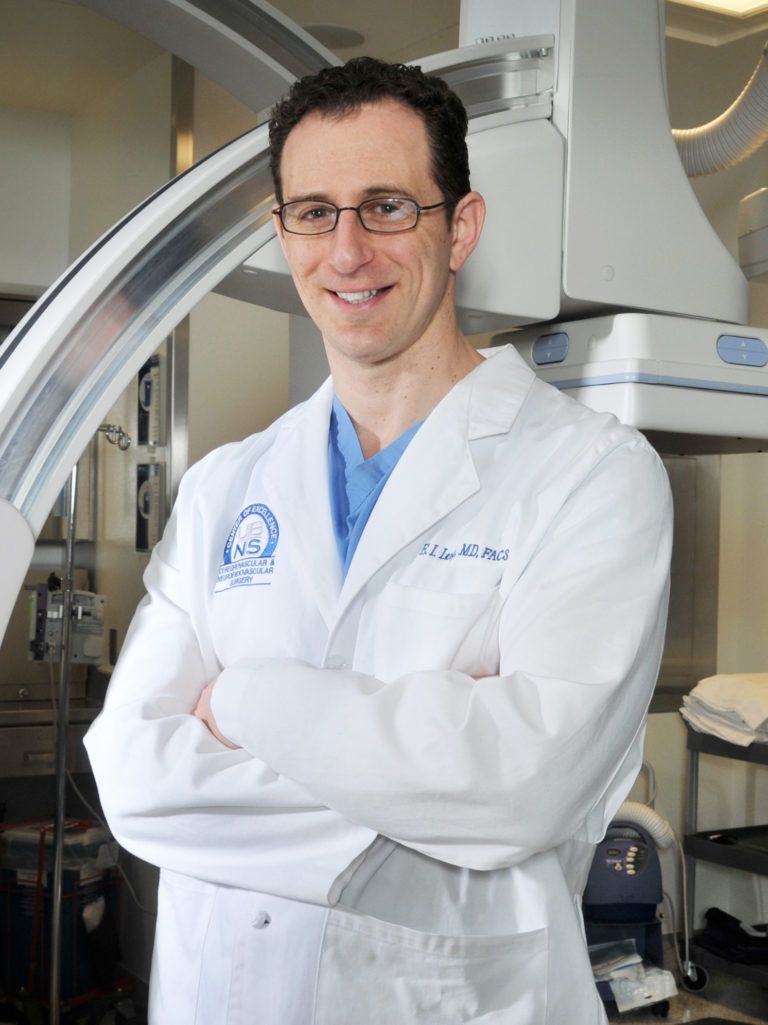Blood Clots, Strokes, and COVID
Medical Experts are Trying to Understand the Connection
By Annette Pinder
An interesting phenomenon is occurring that medical experts are trying to understand. Typically considered a lung infection, SARS-CoV-2, the virus that causes COVID-19, is having an effect on the lining of blood vessels throughout the body, leading to clots.
A report published in the New England Journal of Medicine highlights an increase in people of all ages, including those as young as 30, who are experiencing large vessel strokes. Since COVID increases a person’s risk of developing clots, especially in more severe cases, researchers believe that this is not a coincidence.
Elad Levy MD MBA FACS FAHA, Professor and Chair of Neurosurgery at UB Neurosurgery, explains that, “Small blood clots can travel and obstruct blood flow to the lung resulting in a pulmonary embolism, or travel to the brain resulting in an ischemic stroke. Like many other diseases, COVID creates inflammation throughout the body, which can increase the risk of fatty plaque buildup and blood vessels rupturing, which can also lead to stroke.”
Of particular concern to Dr. Levy is that patients who fear contracting COVID-19 delay going to the ER even when they experience symptoms that should prompt them to be seen immediately. “Not only do people need to know the symptoms of stroke, they also need to know that our hospitals are safe, and that immediate treatment can be vital. Also, endovascular treatment for stroke is typically minimally invasive and involves the use of small catheters inserted from the groin or arm into the blood vessels in order to restore blood flow to the brain,” says Dr. Levy. Thus, he advises people to call 911 if they are experiencing any of the symptoms listed below.
- Weakness or paralysis of the extremities on one side of the body
- Lack of sensation in extremities on one side of the body
- Facial droop on one side of the face
- Speech impairment
Many who fear contracting COVID wonder what precautions they can take to avoid becoming ill. Dr. Eduardo Sanchez, Chief Medical Officer for Prevention at the American Heart Association recommends that people not let their guard down, and Dr. Levy agrees, saying the best precautionary measures are simple.
- Continue social distancing and staying home as much as possible
- Wash your hands frequently with soap and water for 20 seconds
- Don’t touch surfaces in public and wear a mask or cloth face covering when you are out in areas where it’s hard to social distance
- Cover your coughs and sneezes with a tissue and then throw it away
- Try not to touch your mouth, nose, or eyes
People at-risk for becoming sicker from COVID should be even more vigilant, including those with coronary heart disease, high blood pressure, diabetes, compromised immune systems, and chronic lung disease; the elderly; and Blacks, Hispanics, and Latinos, who have been more disproportionately affected.
Learn more about Dr. Levy and the work being done at UB Neurosurgery at www.ubns.com and Gates Vascular Institute at www.kaleidahealth.org/gvi. Learn more about stroke at www.stroke.org, and call 911 immediately if you or a loved one is experiencing stroke symptoms.











